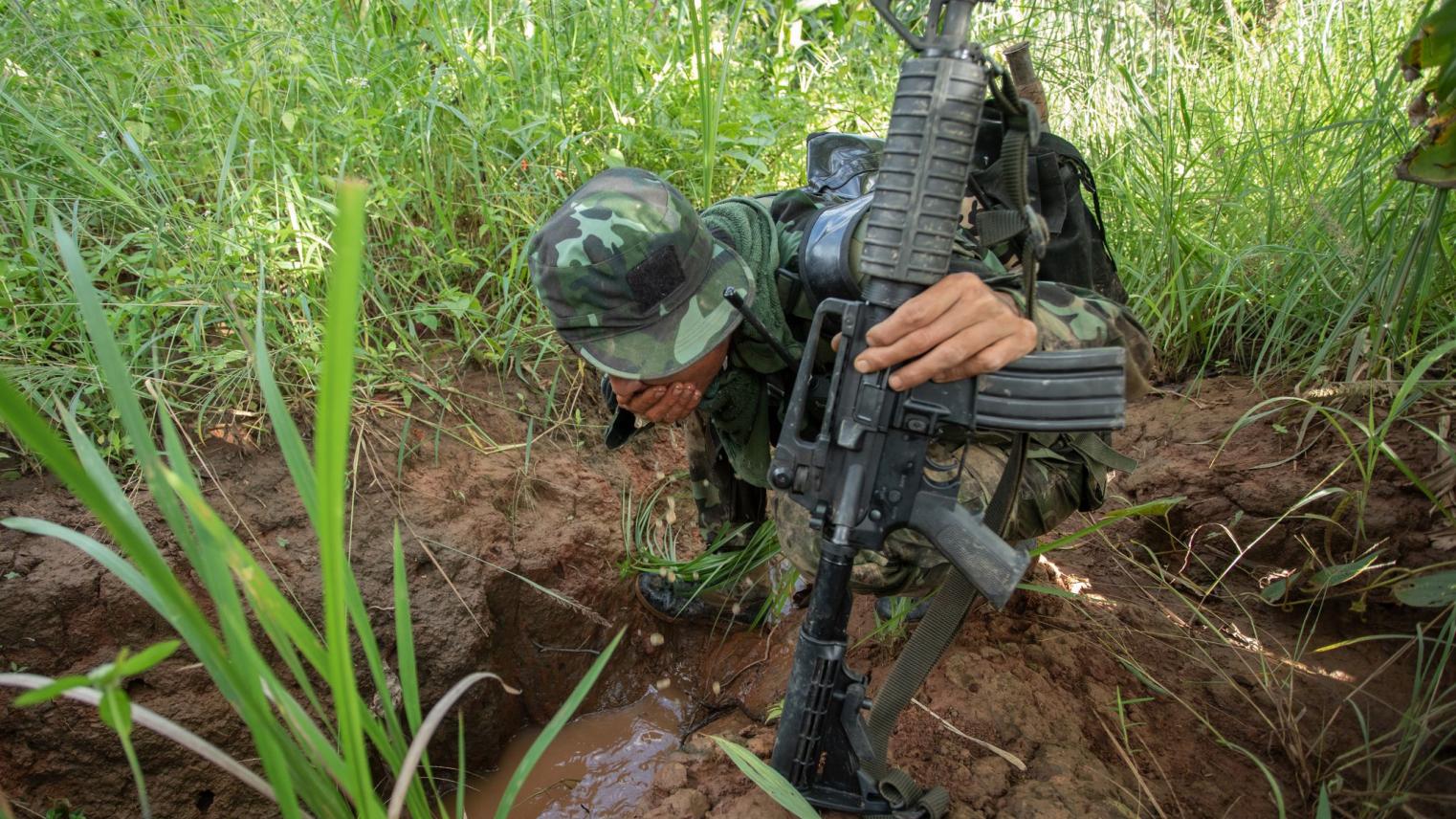Myanmar Update 2023: A window onto Myanmar’s revolutionary situation

As part of its ongoing commitment to regional engagement and advancing the knowledge and understanding of the Asia-Pacific region, the ANU College of Asia and the Pacific is delighted to announce the forthcoming hosting of the Myanmar Update 2023.
This event, run biennially since 1990 by the Australian National University, provides an in-depth analysis of the current economic, political, and social conditions in Myanmar. It is one of only two longstanding regular international conferences focussing on this mainland Southeast Asian country, and the only one where presented papers are published in a series of edited volumes.
The subject of this year’s Update is the remarkable resistance to the 2021 coup. In February 2021, Myanmar’s army seized power from its democratically elected government. A near-countrywide revolutionary movement ensued, bringing together various political, ethnic, and religious groups in a fight to end military rule.
“This year the conference explores the political, economic, and social dimensions of the coup and revolution which have put the country on a totally new trajectory, with new revolutionary forces and alliances evolving within a dysfunctional state, a collapsing economy and humanitarian crisis with enormous societal impacts,” said Cecile Medail, Visiting Fellow at the College and one of the conference convenors in 2023.
On the upcoming 21-22 July, scholars, practitioners, and revolutionary actors will give insights into the conflict. Zin Mar Aung, Minister of Foreign Affairs for the National Unity Government, which formed after the 2021 coup as a proxy for the ousted elected government, will deliver the keynote address.
Panels will feature senior scholars hailing from the US, Canada, Thailand, the Netherlands and elsewhere, covering topics such as ‘Women's agency in armed struggles in Myanmar's Spring Revolution’ and ‘Creative resistance and nationalism among youth activists in post-coup Myanmar’.
The day before the conference, the historian Michael Charney from the School of Oriental and African Studies, University of London, will present a special guest lecture on how and why to decolonize knowledge of Burma’s past.
The conference convenors also hope to provide a window into the revolutionary situation in Myanmar through multimedia. Through the captivating documentary screening and photography exhibition ‘How to quantify FEAR’, attendees will be able to immerse themselves in the experiences of people in Myanmar since the coup, first protesting in the streets and later resisting military crackdowns by building barricades to protect neighbourhoods from night-time military raids. When the military shot and killed protestors, many decided to continue the struggle by going into the jungle, seeking military training from ethnic organisations, and taking up arms against the military.
“The world needs to pay more attention to what is happening in Myanmar,” said Mauk Kham Wah, whose award-winning photographs of protestors and anti-coup fighters are showcased at the exhibition. He spent a year alongside young Karenni people in eastern Myanmar who joined the resistance, witnessing fighting, comradeship, and grief. “I feel honoured to be part of the photography exhibition, where I can express the indomitable spirit of the Myanmar people fighting for freedom.”
“The duty of being Burmese, the burden of being Burmese, is to make our speech through art,” said Mayco Naing, curator of the ‘How to quantify FEAR?’ art exhibition and a contemporary visual artist. “We travel as much as possible with exhibitions to express our voice. We witness the military's coup d’etat through the exhibition, and we ask for our rights.”
The conference will see the launch of ‘Myanmar in Crisis’, a volume of papers from the 2021 Update. The book investigates the combined impact of the COVID-19 pandemic and the coup. It provides a comprehensive picture of the social, political, and economic implications of Myanmar’s current overlapping crises.
“This edited volume helps to capture some of the dynamics of the crisis affecting people in and from Myanmar, particularly in the wake of the military coup,” wrote Justine Chambers, CAP Visiting Fellow, in the introduction to the latest volume. Justine is the co-convenor of three Myanmar Update conferences and co-editor of the latest volume with Michael Dunford, a PhD candidate at the College.
“Even though the military is trying to instil a permanent sense of crisis to justify its own existence and rule, Myanmar’s people and its academic community continue to resist in a multitude of ways,” she expressed.
Before the conference, early career researchers and PhD scholars of Myanmar will gather at a workshop to share experiences and lessons learned regarding fieldwork, methods, research, and writing since the February 2021 coup.
The support of the College and other organisations, this year including the International Development Research Centre (Canada), the International Institute for Democracy and Electoral Assistance (International IDEA), and the Australian Government’s Department of Foreign Affairs and Trade, is crucial to ensuring the Myanmar Update remains the longest-running political and social studies conference series in the world.
“None of this would have been possible without the strong support of the University, particularly, the ANU College of Asia and the Pacific. With College backing we seek out and obtain additional support from partners in government and international organisations,” said Nick Cheesman, Director of the Myanmar Research Centre and Associate Professor in the Department of Political and Social Change at the College.
The Myanmar Update 2023 – ‘From Coup to Revolution’ – takes place from 21-22 July. Register for the conference here.